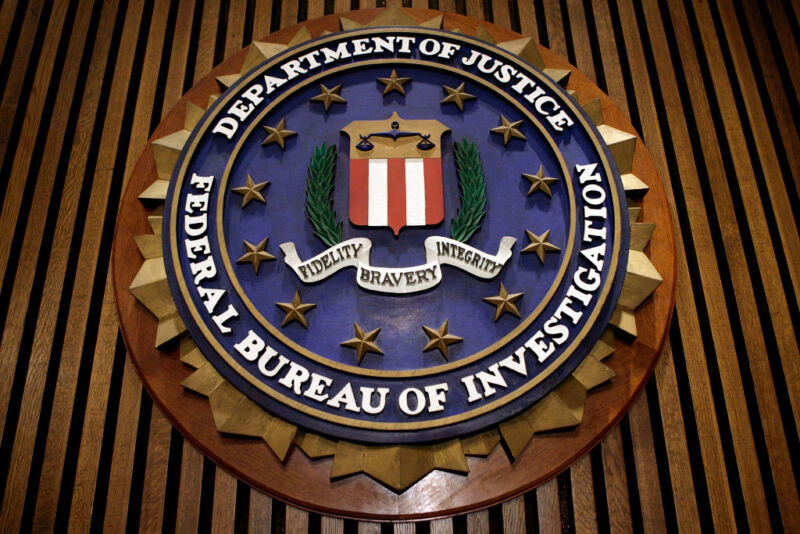Widespread FBI Abuse Of Foreign Spy Law Sets Off Alarm Bells

The FBI isn’t supposed to use its most controversial spy tool to snoop on emails, texts, and other private communications of Americans or anyone located in the United States. However, that didn’t stop the FBI from sometimes knowingly using its Foreign Intelligence Surveillance Act (FISA) Section 702 powers to conduct warrantless searches on US persons more than 280,000 times in 2020 and 2021, according to new disclosures. US Senator Ron Wyden (D-Ore.) described the searches as “shocking abuses.”
Among the most concerning so-called backdoor searches on Americans were disclosures that the FBI ran more than 23,000 queries on people involved in storming the US Capitol, 19,000 on political campaign donors, and 133 on protesters after the police killing of George Floyd. The deputy director of the Center for Democracy and Technology’s Security and Surveillance Project, Jake Laperruque, said that “these latest revelations should set off alarm bells across Congress,” urging lawmakers in a statement not to re-authorize FISA Section 702 at the end of this year—when it’s due to expire—without a “full overhaul.”
“The systemic misuse of this warrantless surveillance tool has made FISA 702 as toxic as COINTELPRO and the FBI abuses of the Hoover years,” Laperruque said, while his group’s press release noted that the court opinion “confirmed the worst fears of civil rights and civil liberties advocates.
“We now know that the FBI, which has already been under scrutiny for a litany of past compliance violations involving Section 702, engaged in improper searches for Americans’ communications targeted at political activities and actors,” the press release said.
These revelations came to light after a heavily redacted court opinion—decided in April 2022 by the US Foreign Intelligence Surveillance Court (FISC, also known as FISA Court)—was newly unclassified last Friday. It detailed the “FBI’s pattern of conducting broad, suspicionless” queries and confirmed that Section 702 compliance issues have “continued to surface.”
The FISC order prompted the FBI to implement “technological and training responses” that have seemingly led to a “sharp decline” in warrantless searches accessing Americans’ data from December 2021 to November 2022, according to a press release from US Representative Darin LaHood (R-Ill.). This is partly due to mandatory training that the FBI told the court had a 97.5 percent completion rate as of February 2022. Anyone who didn’t complete the training reportedly lost access to run Section 702 queries, the FBI told the court. Moving forward, FBI employees will have to complete annual training with a pass/fail test.
As the FBI continues to assess compliance issues, the FISC presiding judge who wrote the order, Rudolph Contreras, said that “perfect implementation is unrealistic,” and more reforms may be needed.
“Compliance problems with the FBI’s querying of Section 702 information have proven to be persistent and widespread,” Contreras wrote. “If they are not substantially mitigated by these recent measures, it may become necessary to consider other responses, such as substantially limiting the number of FBI personnel with access to unminimized Section 702 information.”
Investigating the FBI’s many missteps
LaHood leads a bipartisan working group charged with proposing Section 702 reforms “to help deter abusive behavior by the FBI” by conducting a “thorough and comprehensive review of FISA” and confronting the “missteps and inappropriate actions taken by the FBI.”
Contreras’ opinion described some of these missteps as the FBI “frequently” violating querying standards by accessing information on Americans and then sometimes failing to purge that information once it was discovered.
Some FBI personnel claimed that they couldn’t remember why they conducted some of these improper searches. Others claimed that queries on Black Lives Matters protesters were proper simply because they had been arrested. Personnel also said that queries on people who stormed the US Capitol were appropriate because these people were generally viewed as a threat to national security. Perhaps most alarming, one FBI employee had to be immediately retrained after admitting that he seemingly hid many incidents of abuse by always recording queries as not involving US persons, even if “the facts indicated otherwise.”
The court disagreed with all the FBI’s attempts to legitimize the improper searches but also validated the current process as generally sufficient to safeguard private information about people in the US.
Regarding threats to Fourth Amendment protections, Contreras wrote that the FBI’s current querying standards are also sufficient but clarified that “if the scope and pervasiveness of FBI querying violations were to continue unabated, they would present greater statutory and Fourth Amendment difficulties in the future.”
“There is a point at which it would be untenable to base findings of sufficiency on long promised, but still unrealized, improvements in how the FBI queries Section 702 information,” Contreras wrote.
LaHood has said that his working group does not anticipate Congress re-authorizing Section 702 unless more serious reforms are implemented.
“Without additional safeguards, a clean reauthorization of 702 is a non-starter,” LaHood said in his press release.
Ars could not immediately reach the FBI or LaHood for comment.
In his statement, Wyden said that he was “disappointed at the extent of the redactions” in the FISC opinions, saying that the Director of National Intelligence (DNI) needs “to inform the public about how the government and the FISA Court are interpreting the law.”
“There is important, secret information about how the government has interpreted Section 702 that Congress and the American people need to see before the law is renewed,” Wyden said.
Laperruque agreed with this criticism, telling Ars that “we’ve made major improvements to the FISA Court over the last decade but we need to build on them, because serious issues remain.” Most critically, Laperruque told Ars that “the government has been able to block disclosure to defendants when FISA 702 is used and invoke standing and state secrets issues to block litigation on procedural grounds and avoid debating FISA 702 in court on its substance.”
“That needs to change,” Laperruque said.
READ MORE HERE
